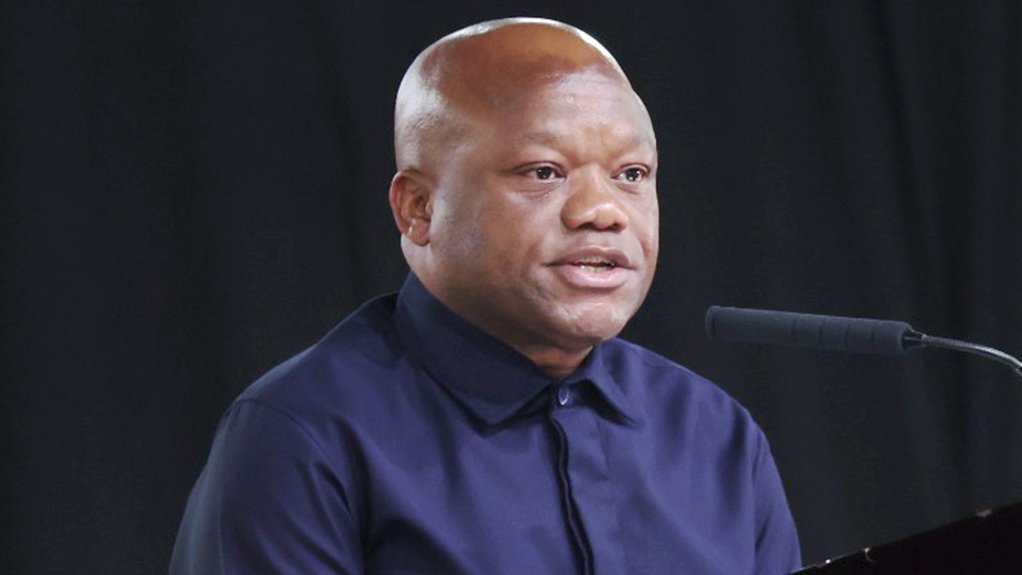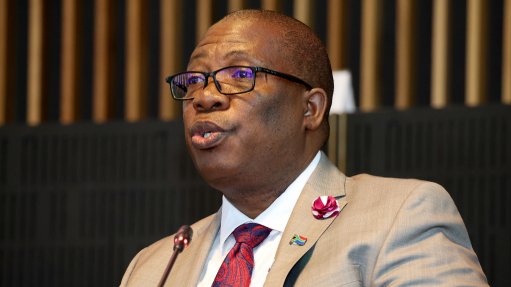DPWI to set up Office of the Engineer-General South Africa soon
The Department of Public Works and Infrastructure (DPWI) will be pressing ahead with setting up the Office of the Engineer-General South Africa as soon as possible, Public Works and Infrastructure Deputy Minister Sihle Zikalala has said.
Speaking at the 2025 Construction Business and Project Management Conference, in Cape Town, on April 24, he said that setting up this office would serve to promote engineering excellence, while providing the leadership required to bridge gaps in regulation.
This will ensure compliance with engineering standards and oversee large-scale engineering projects that are critical to South Africa’s economic growth.
In light of recent tragedies such as the George building collapse, in the Western Cape, Zikalala reiterated the urgent need to bridge the gap between regulation and compliance, placing construction safety and global standards at the forefront of the DPWI’s agenda.
“In the aftermath of the tragic George building collapse last year that left 34 people dead, we need to look to conferences like this to move beyond preaching about safety, to actually ensuring that safety is vigorously enforced.
“The conference must stimulate our imagination and push us to adopt innovation and technology to better develop and deliver sustainable infrastructure. We need to revitalise industry efforts of promoting green building designs and ensuring that technology and sustainability are core to the country’s infrastructure plans,” he said.
Zikalala conceded, however, that government needed the private sector to “come to the party” to enable service delivery through the public-private partnership (PPP) model.
Despite imploring the private sector to help government deliver services and projects, Zikalala continued to emphasise the need for industry to embrace the agenda of transformation in a more vigorous manner.
He said the industry “still reflected the legacy patterns of exclusion”, stating that, after 30 years of democracy under African National Congress rule, many rural communities remained underserved, and that under-representation in both construction employment and decision-making were persistent problems.
He said the sector needed to evolve to not just be more productive but also to be more equitable.
However, many have criticised the contradictory tension in government’s simultaneous appeal for increased private-sector investment and its increasingly rigid regulatory environment.
On one hand, policymakers repeatedly emphasise the crucial role of the private sector in stimulating economic growth, job creation, and assisting in the delivery of infrastructure and essential services – an implicit admission of the State’s own capacity limitations.
Yet, on the other hand, the same government continues to enact and tighten policies such as broad-based black economic empowerment (BBBEE) and employment equity (EE) regulations that many investors and business leaders see as structurally inhibitive.
BBBEE requires companies to meet targets across ownership, management control, skills development, and procurement, often leading to complex and costly restructuring efforts. These requirements, while grounded in an intent to redress historical injustices, frequently clash with market realities – particularly for small and medium-sized enterprises that lack the capital or demographic access to comply.
In parallel, the latest EE amendments have made compliance even more burdensome by ramping up sectoral demographic quotas enforceable through State authority, whereby the State can confiscate 2% of a business’s yearly turnover if it does not comply or fine them R1.5-million.
This places companies with more than 50 employees in a precarious position where failing to meet quotas, regardless of their practical feasibility, may bar them from accessing government tenders or expose them to penalties.
Such unpredictability, especially in a country already grappling with energy instability, crime and decaying infrastructure only serves to increase the perceived risk of doing business.
With the government publicly calling for increased private-sector engagement while simultaneously creating legislative and regulatory hurdles that drive capital away, critics have said that this dissonance deters foreign investment while also forcing domestic businesses to downscale, derisk, or exit altogether.
Nonetheless, Zikalala undertook to double down on policy enforcement as a tool to influence markets and drive systemic transformation.
He said that, as a sector that underpinned South Africa’s economic infrastructure and human development, construction and project management were under growing scrutiny, not only for their ability to deliver, but also for how they deliver.
“Policy is not a constraint but a catalyst. It is the lever through which we can build a resilient infrastructure economy, an inclusive workforce and a climate-conscious construction sector,” Zikalala asserted.
Article Enquiry
Email Article
Save Article
Feedback
To advertise email advertising@creamermedia.co.za or click here
Announcements
What's On
Subscribe to improve your user experience...
Option 1 (equivalent of R125 a month):
Receive a weekly copy of Creamer Media's Engineering News & Mining Weekly magazine
(print copy for those in South Africa and e-magazine for those outside of South Africa)
Receive daily email newsletters
Access to full search results
Access archive of magazine back copies
Access to Projects in Progress
Access to ONE Research Report of your choice in PDF format
Option 2 (equivalent of R375 a month):
All benefits from Option 1
PLUS
Access to Creamer Media's Research Channel Africa for ALL Research Reports, in PDF format, on various industrial and mining sectors
including Electricity; Water; Energy Transition; Hydrogen; Roads, Rail and Ports; Coal; Gold; Platinum; Battery Metals; etc.
Already a subscriber?
Forgotten your password?
Receive weekly copy of Creamer Media's Engineering News & Mining Weekly magazine (print copy for those in South Africa and e-magazine for those outside of South Africa)
➕
Recieve daily email newsletters
➕
Access to full search results
➕
Access archive of magazine back copies
➕
Access to Projects in Progress
➕
Access to ONE Research Report of your choice in PDF format
RESEARCH CHANNEL AFRICA
R4500 (equivalent of R375 a month)
SUBSCRIBEAll benefits from Option 1
➕
Access to Creamer Media's Research Channel Africa for ALL Research Reports on various industrial and mining sectors, in PDF format, including on:
Electricity
➕
Water
➕
Energy Transition
➕
Hydrogen
➕
Roads, Rail and Ports
➕
Coal
➕
Gold
➕
Platinum
➕
Battery Metals
➕
etc.
Receive all benefits from Option 1 or Option 2 delivered to numerous people at your company
➕
Multiple User names and Passwords for simultaneous log-ins
➕
Intranet integration access to all in your organisation





















